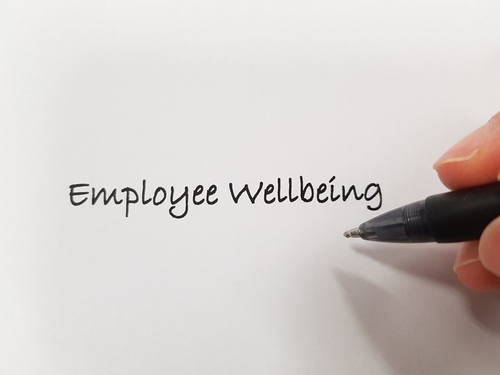The workplace is one of the leading sources of stress in America. According to The American Institute of Stress, 75% of employees believe workers have more on-the-job stress than the previous generation, and 40% reported their job was extremely stressful. We’re now finding managers have an outsized influence on their employees’ mental health, with 70% of people saying their managers have more impact on their mental health than their therapists or doctors. With a new generation of young professionals entering the workforce demanding mental health resources, savvy business leaders are uncovering new strategies to support employee well-being.
Lead by Example (It Starts from the Top)
In my opinion, a successful corporate mental wellness program has to start from the top. Employees look up to their managers and executives for guidance, inspiration, and leadership. If executives can be seen fully participating in the mental wellness programs, it’s more likely employees will buy in and participate themselves—for example, when there’s a team environment in which a component of togetherness is embedded into the mental wellness program. Instead of offering employees free access to a meditation app, having managers and their direct reports participate in a group meditation once per week can create a team mentality. The team aspect develops a stronger mindfulness culture within the company because there’s a sense of camaraderie and togetherness with sharing in the same mindfulness experience. An added bonus is when a mindfulness workshop or activity is scheduled by a manager and on everyone’s calendar. This can be a healthy forcing function that gets everyone to participate. Typically, if the wellness offering is a siloed activity, employees’ opt-in rate will be much lower.
How Are You? (No, Really?)
This subtle question can seem so simple, but it’s extremely powerful and oftentimes overlooked and forgotten as a successful way to help improve someone’s overall mental health. Business moves quickly, and managers are constantly focused on checking off their to-do lists and sometimes forget to take the time to ask their direct reports how they’re doing.
To clarify, I’m not talking about asking “how are you?” and getting a response like “good” or “fine” and then moving onto business. Managers should be challenged to get curious and intentional in their pursuit to find out how employees are doing. Most people don’t have someone in their life who asks them with intentional curiosity how they’re doing. Employees want to feel valued and know their company cares about them outside of their job function, so being able to honestly share updates/feelings with a manager can really improve someone’s overall mental health. A simple recommendation is to have all managers start meetings with intentional small talk. By taking 5 minutes to truly ask how employees are doing will go such a long way. It opens a door to learn about each employee and develop a stronger social connection, which research shows is the greatest determinant of one’s overall fulfillment and happiness. In fact, researchers determined close friendships at work can increase workplace productivity and improve job satisfaction.
Be a Catalyst for Growth
A big part of people’s overall mental health comes from whether they feel they’re growing. Strong managers take it upon themselves to help employees grow professionally. A couple strategies to foster a relationship of growth include:
- Asking how you can be of service. Managers typically have more experience within the company and have the ability to move obstacles or offer guidance to get an individual from point A to point B.
- Empower employees. People want to feel they’re doing meaningful work. When employees receive coaching or mentoring to take ownership of a project, trust is developed, and the work becomes far more meaningful to employees when they take full ownership.
- Offer growth tools outside of work. Sometimes timing and internal company growth opportunities don’t align for employees, but that shouldn’t stop a manager from helping them grow. Managers can offer trainings or suggest a book to read or a new podcast to listen to. If managers take the time to help employees grow in all areas of their life, it will pay dividends to their overall mental well-being.
The workplace is a constantly evolving ecosystem with new challenges that will continue to arise, but mental health will always be a conversation that ultimately affects employee engagement, satisfaction, and productivity and a company’s bottom line. Forward-thinking leaders are beginning to comprehend just how much influence they have on employee mental health and are implementing new, and sometimes simple, strategies that have a huge benefit.
Carson Finkle is a successful entrepreneur who’s currently the acting CEO of a fast-growing direct-to-consumer (D2C) hat company called Tenth Street Hats and an e-commerce advisor to the Brand Growth Experts Accelerator. After experiencing entrepreneurial burnout, he’s now on a mission with a new venture to help entrepreneurs and companies improve their mental health and well-being with Create Meditation. Create Meditation uniquely combines breath work, personalized music, and different mindfulness practices into one distinctive, tailored experience that helps release stress and anxiety, connect the mind and body, rewire the brain with new personal beliefs, and activate the power from within.

